Fishing on the frontline amid South China Sea dispute
- Published
Wang Chun Li: "I am prepared to fight"
Wang Chun Li knows the dangers of the South China Sea better than most.
As a young man he fished for sharks and spent up to three months at sea on a single trip. But now the 50-year-old says the waters are the most dangerous he has ever experienced.
"We're scared of going out without protection," he says, standing on his 30m wooden boat in the busy fishing port of Tanmen.
"A big boat like this costs a lot of money and I don't want to lose it."
Capt Wang is a battle-hardened veteran of the growing skirmishes on the South China Sea involving several Asian countries.
With a third of the world's shipping passing through its waters, the South China Sea is of vital strategic importance.
But increasingly, territorial disputes are flaring up over its potentially huge oil and gas deposits as well as the rich fishing grounds.
Countries including China, Vietnam, the Philippines and Taiwan all have competing territorial claims over various different rocks, reefs and islands.
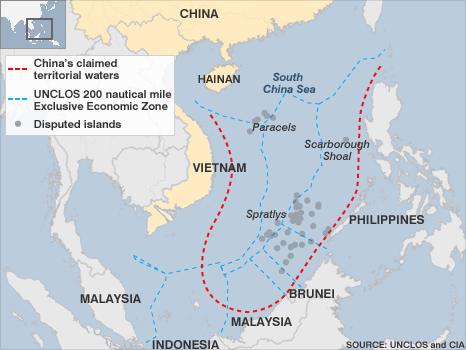
Nervous neighbours
But these growing disputes mean the fishermen of Tanmen need to operate on the frontline in order to make a living.
In his sparse wooden cabin, Capt Wang carefully lays out his charts to set out his roll call of clashes at sea.
Five years ago, he says, his fishing boat was seized by the Malaysian authorities following a confrontation. He then says he was thrown into jail for five months.
Capt Wang bought another boat and headed straight back out to sea.
In the latest incident last year, he says, the Vietnamese coast guard attacked his crew.
"The Vietnamese patrol deliberately sank one of our small boats," he said. "I was in Chinese waters."
"Three of my crew were left clinging to rocks. I managed to rescue them. But now the men are too terrified to return to sea."
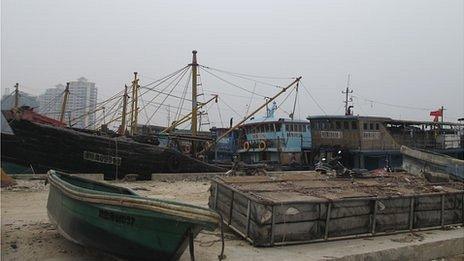
Fishermen in Tanmen say the disputes threaten their livelihoods
Of course, fishermen from across the region report harassment, aggression and even detention at the hands of rival claimants to South China Sea areas.
But China is stepping up its patrols, it says, in order to protect its fishermen.
Beijing is also staking its claim to disputed territories and waters in the South China Sea in more concrete ways.
It is building a brand new city on an island in the heart of South China Sea.
Investment is pouring into the new city, Sansha, including funds for a new military base.
These moves are making China's neighbours nervous, says Stephanie Kleine-Ahlbrandt from the International Crisis Group.
"Right now there's a risk of conflict because all of these competing claims," she said.
"The tensions are being shaped by regional apprehension about the growth of China's economic, political and military power and a lack of clarity over its intentions."
'Provoking'
In response many smaller Asian countries are renewing old friendships with Washington.
But Chinese officials believe that the US is trying to use the issue to contain the rise of China.
Wu Shicun, president of the country's National Institute for South China Sea studies - a government-sponsored think-tank - blames American involvement for inflaming the tensions.
"Countries like Vietnam and the Philippines now believe that Washington will support them in any dispute," he said.
"That's the reason why they're provoking Beijing over the South China Sea issue."
Back on his boat, Capt Wang is running out of patience. He says that China should use force to end the disputes.
"We should send our troops to take back our territorial waters," he said, a portrait of Chairman Mao hanging on the cabin wall behind him.
"I'm prepared to fight. I've waited a long time for military confrontation."
It is this type of talk that makes China's neighbours extremely nervous.
Beijing insists its rise is peaceful. But China's growing power and confidence are sending ripples across the region.
- Published7 July 2023
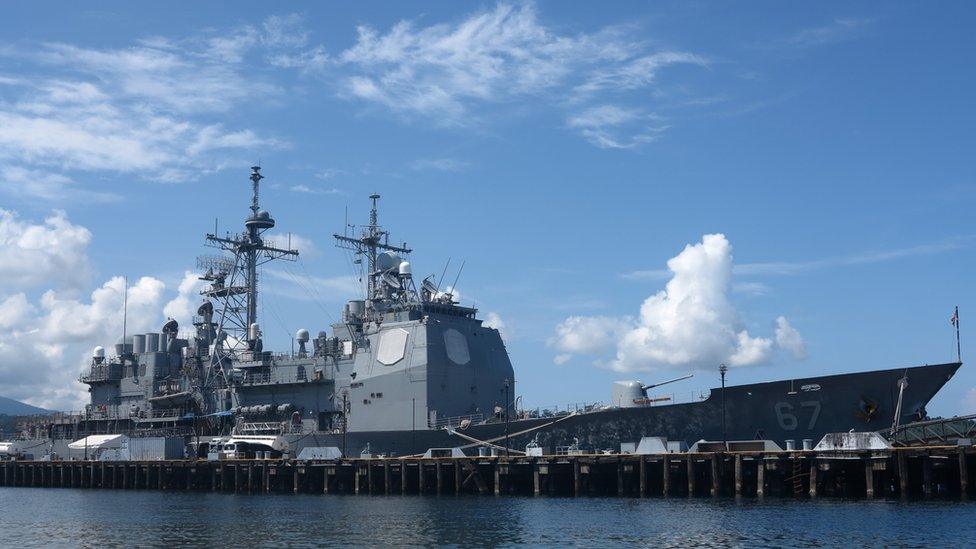
- Published9 December 2012
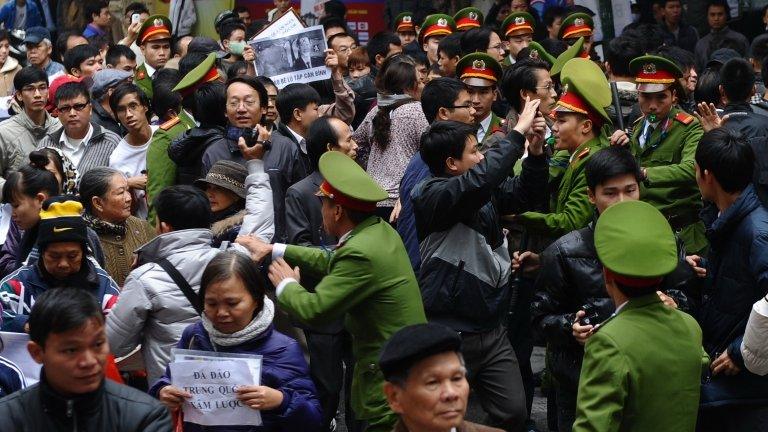
- Published30 November 2012
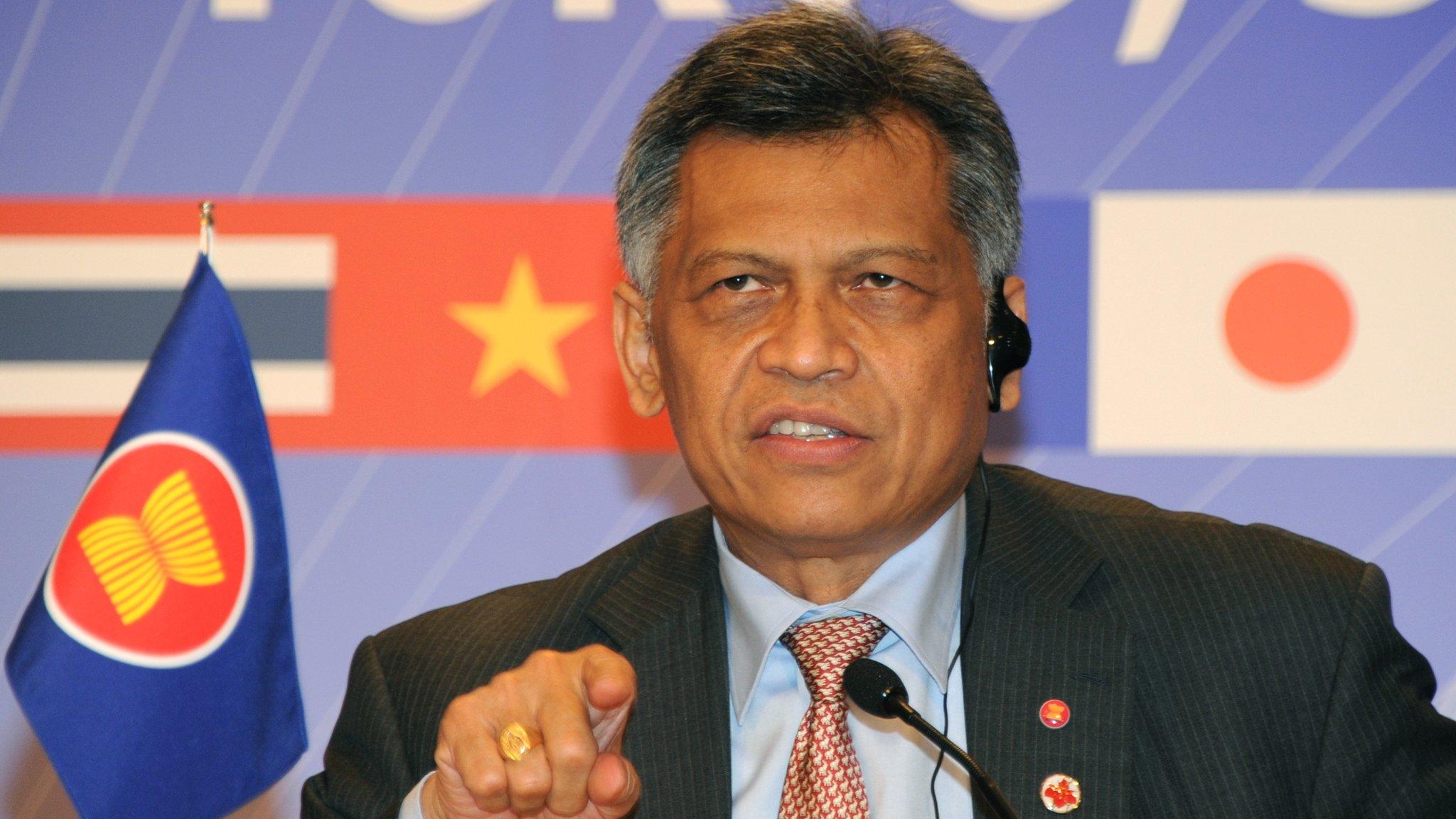
- Published1 August 2012
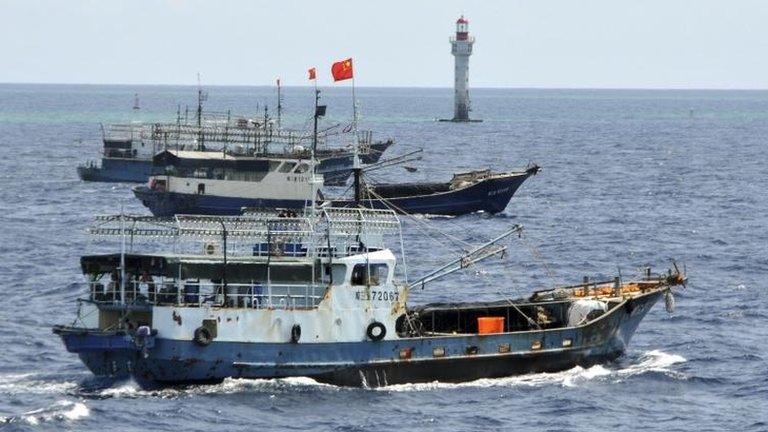
- Published9 February 2012